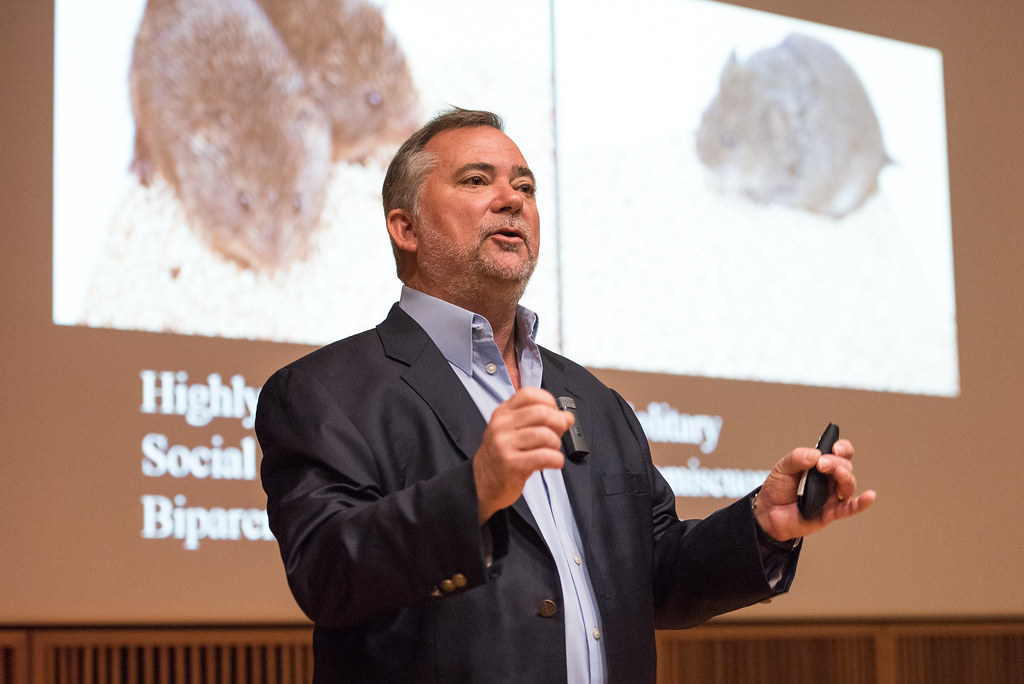Larry Young explores chemicals behind monogamy in prairie voles, humans

By Allison Scott | Bond LSC
Upon first glance, it wouldn’t seem that humans and small rodents have that much in common.
However, Larry Young extensively studies the prairie vole because their desire to mate for life.
“Prairie voles mate for life,” Young said. “That’s very unusual, in fact, only three to five percent of mammals do this.”
This commonality between the small mammal and humans allows Young to relate his research on voles to humans. His goal is to understand the neurochemical bond that occurs between two voles after mating.
Neurologically, this “pair bonding” occurs largely because of oxytocin. The brain houses receptors for this hormone that create pleasure from it. The resulting feeling’s mutual, and chemical, leading a bond to form.
“The brain’s reward system houses the receptors that make oxytocin an influential chemical,” Young said. “Prairie voles activate this when they bond.”
Young manipulates the prairie vole’s brain to try an understand why exactly pair bonding exists. He then takes brain scans of them, compares them to mice that aren’t monogamous and sees what’s happening differently in their brains. In doing so, he is able to pinpoint differences in the voles and apply that knowledge to humans.
“We should think of ourselves as part of a continuum,” Young said. “The voles have a similar makeup to humans, but we don’t say that they’re in love – we say they’re bonded.”
That distinction makes a difference in Young’s studies. However, he’s still able to learn a lot about people by observing voles, and it’s those revelations that Young enjoys most.
That insight might one day lead to treatments for autism or other disorders where issues in interaction and bonding affect people.
“The Science of Love isn’t just entertaining,” Young said. “It has the potential to change lives for the better.”
The 13th annual Life Sciences and Society Symposium, The Science of Love, started Friday, Oct. 6 and Saturday, Oct. 7. It features six experts that research various aspects of love, relationships and connection. The event will conclude on Friday, Oct. 13 with its last speaker, Jim Obergefell, who was the plaintiff in the 2015 Supreme Court case on marriage equality.

